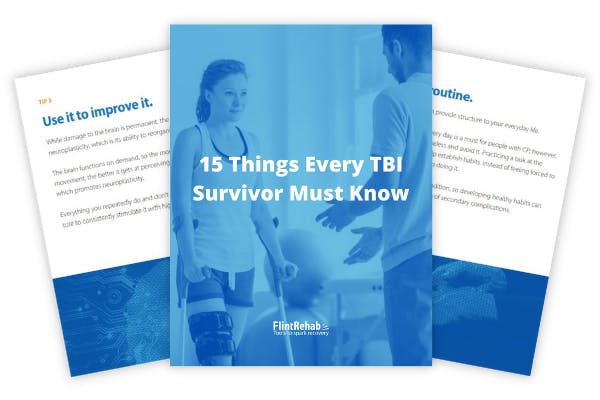Brain Injury and Vitamin B12: How This “Brain Vitamin” Can Help Boost Your Recovery
It’s no secret the brain requires food and nutrients to function properly, especially after a brain injury. One of the most essential vitamins to add to your diet after a brain injury is vitamin B12.
In this article, we’ll discuss the benefits of taking vitamin B12 after brain injury and where it can be found. Be sure to consult with your doctor or specialist before adding vitamin B12 to your diet.
Understanding the Link Between Brain Injury and Vitamin B12
After traumatic brain injury (TBI), many of the neural connections suffer damage and impair functions like movement or speaking.
However, the brain is resilient in forming new neural pathways to help you regain affected functions. Vitamins provide the brain with the tools necessary to form these new pathways, and vitamin B12 may be the most essential vitamin your body needs after a brain injury.
Vitamin B12 is also needed for the function and development of the brain and central nervous system, which helps improve cognitive function and processing speed in TBI survivors.
This “brain vitamin” can help boost your recovery by promoting the regeneration of neurons (brain cells) and allowing for better communication between the brain and body. It is also needed, especially after brain injury, to improve cognitive function, processing speed, and overall health of the brain and central nervous system.
B12 is also used for the production and maintenance of myelin sheaths, which are an insulating layer of protein and fat around your nerves. The myelin sheaths protect the nerves of the central nervous system and allow messages to travel efficiently.
Additionally, B12 helps with the formation of neurotransmitters, which are the chemical messengers that transmit messages along nerves. Neurotransmitters make it easier for your brain to communicate with the nerve cells and allow your brain to heal and repair the damage more swiftly.
How Vitamin B12 Promotes Axonal Growth


Many of the foods that are rich in vitamin B12 are the same foods found in a ketogenic diet. This is a low-carb, high-fat diet that triggers the production of ketones, which can be used for energy.
The brain usually uses glucose as its main source of energy. However, after a brain injury, it may not process glucose as efficiently as it did before. This makes a ketogenic diet ideal for TBI survivors since ketones can be used as the brain’s main source of energy.
Initial animal research shows promising results that ketones “decrease oxidative stress, increase antioxidants, and scavenge free radicals.”
As with all diets, there are certain risks. For example, a high-fat diet is not recommended for individuals with high cholesterol or atherosclerosis, so be sure to talk to your doctor before making any major dietary changes.
Brain Injury and Vitamin B12 Intake
Food and nutrients are key for maximizing recovery after a brain injury. Vitamin B12 is especially important for preserving brain and nerve health by promoting nerve repair and function.
Though best consumed naturally from animal products, supplements can boost Vitamin B12 levels as well. Still, whatever source(s) you choose to add to your diet, consult with your doctor or specialist to ensure they don’t interfere with any medications or preexisting medical conditions.
Vitamin B12 plays an important role in your brain’s function and healing, and we hope this article inspires you to add healthy amounts of it to your diet for a helpful boost in your TBI recovery
Keep it going: Do you know these 15 essential TBI recovery tips?

If you like our content, you’ll love our ebook and newsletters! Get instant access to our TBI recovery tips ebook with 20 pages of helpful advice by signing up below.
You’ll also receive our emails that share survivor stories and more useful TBI recovery tips, which you can opt out of at any time. (We know you’ll love them, too.)
We will never sell your email address, and we never spam. That we promise.
